Can ferrets and plants live in harmony?
Are there plants you should avoid if you have ferrets?
Plants are a wonderful addition to every home, but they aren’t a good match with most pets, including ferrets. How can you avoid destroyed plants and should you check if you have plants that are toxic to ferrets and other pets you can read in this post!
TABLE OF CONTENTS
Ferrets And Plants
Ferrets love plants, for one reason only; plants are located in soil which is a perfect digging spot for them. Most ferrets will attack a plant the second they notice it so if you don’t want to clean scattered soil every day, you should separate plants and ferrets forever.
Why Do Ferrets Dig In Household Plants?
Ferrets are natural diggers and the moment they see a place to dig, they simply can’t resist it. In nature, ferret ancestors are digging to stash food, make a shelter, and many other different reasons and that is why this is so interesting to ferrets. It is in their blood and it isn’t much you can do about that. After all, their ancestors were domesticated because they chased rabbits through underground tunnels.
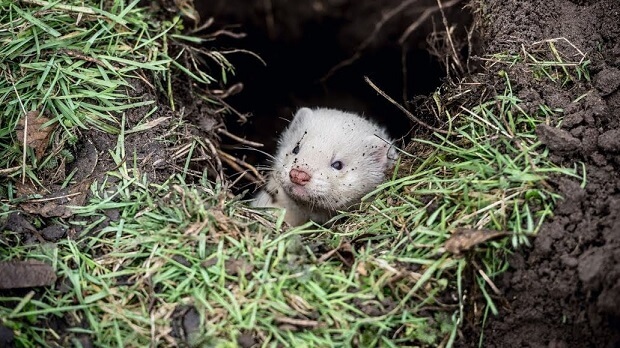 Photo Source: Countryside Alliance
Photo Source: Countryside Alliance
Since most ferrets are indoor pets, the only digging opportunity they have is connected to household plants. That is why they simply can’t resist a nice plant pot standing on the floor. But, this is not safe for them because there are household plants that are toxic to them.
Can A Plant Survive Ferret Attack?
Unfortunately, most plants won’t survive a ferret attack because a ferret will destroy its roots while digging. If a plant survives one ferret attack and you repot it in another pot, you can be sure that the plant won’t be able to survive the next one, or the next few ones.
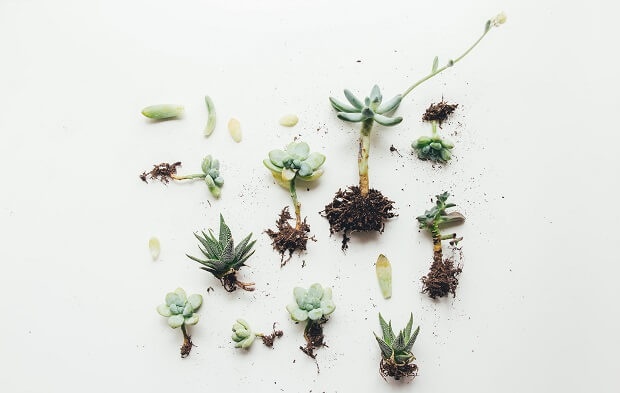
How Can a Plant Be Toxic To Ferrets?
The list of toxic household plants is actually very long and you will be surprised to learn which are the most common ones. But, before I show you the list of toxic plants to ferrets, let’s talk about how can a plant be toxic.
Toxic Seeds
Some plants have seeds that can be toxic to some animals and humans if ingested. Besides that, a seed larger than a pea can cause a blockage in ferrets if ingested. A blockage happens when a ferret ingests something he can’t digest and that item gets stuck in a ferret’s digestive system. This is a very dangerous situation for ferrets because if not treated in time, a ferret can die. Also, often the only treatment for blockage is operation.
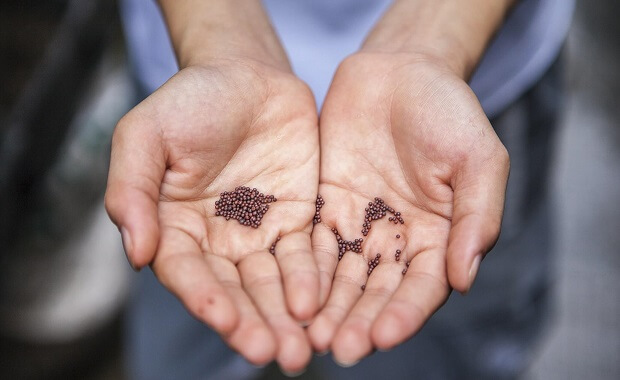
Toxic Leaves And Stem
Other plant parts that can be toxic are leaves and stems. They are toxic if ingested because they can cause different medical issues, from “simple” digestive troubles like upset stomach, vomiting, or diarrhea to more severe ones like kidney damage, seizures, and coma.
Thorns
Although household plants don’t come with toxic thorns, they can injure your ferret so they still deserve to be mentioned. Thorns, no matter the size or thickness, can seriously injure any pet, including the ferret. The injury can be on the paws, face, or body.
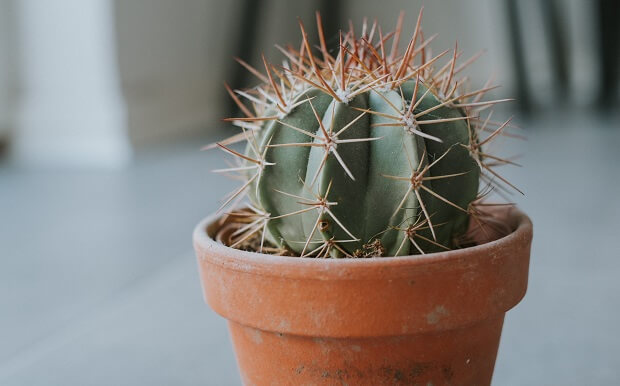
Soil
Not only the plants are toxic, but the soil also can be toxic too, sometimes even worse than the plant itself. Commerical soil can be filled with different chemicals, fertilizers which are bad for our health as much as they are bad for our pets, especially ferrets.
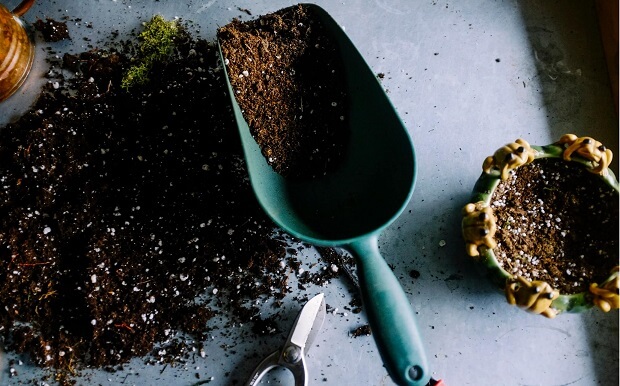
How Can You Prevent Ferrets From Digging Plants?
Ferret proofing is a must for every ferret owner and one of the most important categories are plants. Besides the fact that ferrets are carnivores and they can’t eat any type of plant, there are some toxic plants we have in our home. A list of toxic ferret plants you can find at the end of the article, but my suggestion is to treat every plant you have in your home as it is toxic. That simply means a ferret mustn’t reach it in any way. There are a few ways to achieve that.
Find A High Pot
If you find a high pot or elevated pot for your plant, you can stop your ferret from reaching the plant. The height should be around 20 inches or more, not less. It is a good idea to use pots with rounded edges so the ferret can’t grab onto them to climb in the pot. If you go with an elevated pot, make sure the base the pot is on is high enough to stop ferrets from climbing. This one doesn’t have to be 20 inches, half the heigh is enough, but then there mustn’t be enough room for a ferret to stand on the base next to the plant.
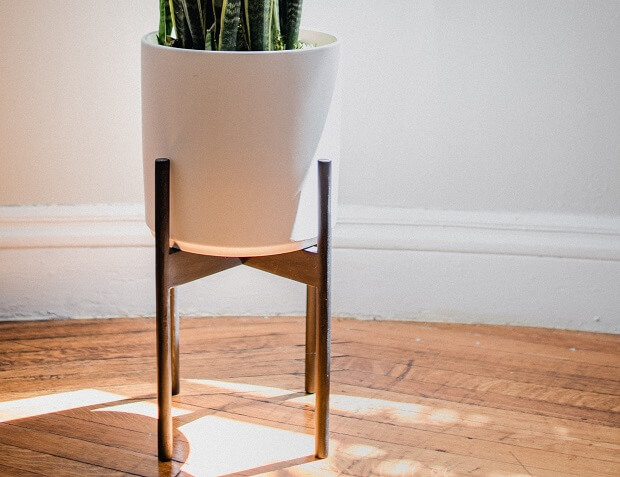
Put The Plant On The Shelf
Another pretty simple solution is to put the plant on the shelf your ferret can’t reach. That means you can put it on the bookshelf or on the shelf on the wall but the most important thing is that your ferret can’t reach it. So, you have to set it away from other furniture your ferret can climb onto (like a sofa, coffee table, TV stand, etc). Remember, every ferret has a unique set of skills so this height can vary from ferret to ferret.
Hang The Plants
Another pretty interesting solution is to hang plants from the ceiling. The only problem with this solution is that you can do that only with smaller plants. Also, make sure you don’t hang them too close to the furniture your ferret can jump from. If your ferret ends up falling from them, he can get seriously injured.
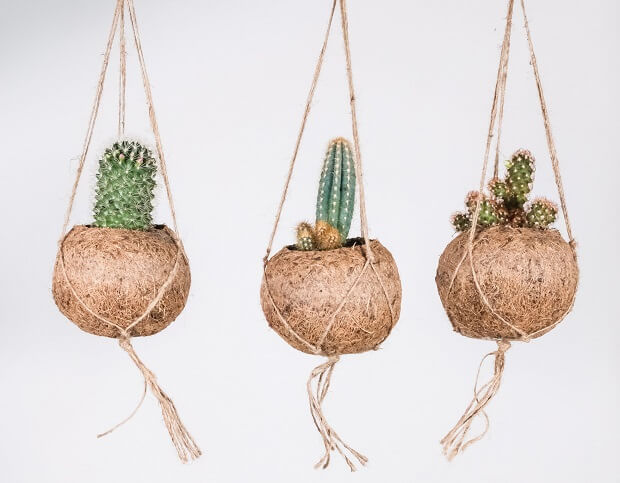
Put The Plants In Other Room
The best thing you can do is to remove the temptation from the ferret room. Choose a room reserved for plants and make that room a forbidden ferret room. That way you can have plants wherever you want and ferrets won’t reach them. But, just to be extra sure, don’t own any toxic ferret plants.
What If Ferret Eats Toxic Plant?
Accidents happen so it is possible for your ferret to eat a toxic plant. If that happens, you have to stay calm and react properly. The first thing you have to do is to determine which plants you have in your home so you can know if one of them is toxic or not.
If you notice that your ferret has eaten some plant, the first thing you have to do is see the name of the plant. Make sure to determine which part of the plant your ferret ate. Remember as many details as you can and observe your ferret.
If you are sure he ate a toxic plant, the next step is to go to the vet and explain the entire situation. Let your veterinarian treat your ferret. If you aren’t sure your ferret ate the toxic plant, keep calm and observe your ferret. At the first sign of distress in your ferret, go to the vet immediately and explain the entire situation.
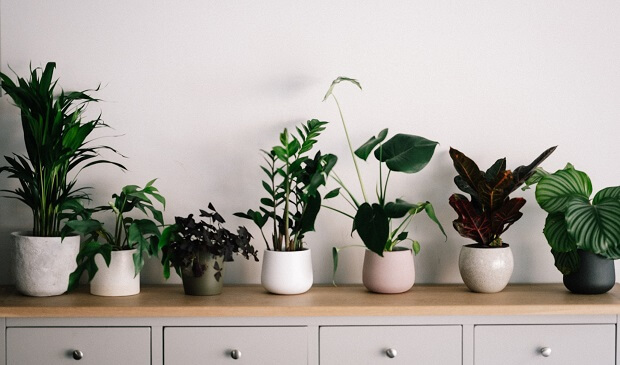
List Of Toxic Plants For Pets
These plants aren’t toxic just for ferrets. They are considered toxic for cats and dogs so they are not a good choice for ferret owners. This is not a complete list, but it is a majority of plants. For more updates or more plants, check out the list from Holistic Ferret Forum.
Aloe vera
Amaryllis
Azalea
Baby’s breath
Begonia
Carnation
Castor bean
Chrysanthemum
Cyclamen
Daffodil
Gladiola
Hosta
Ivy
All lily species
Milkweed
Morning glory
Oleander
Poinsettia
Pothos
Sago palm
Tomato plants
Tulips
Narcissus
Rhododendron
Conclusion
Ferrets and plants aren’t the best matches, but as long as you keep plants out of the ferret’s reach, both of them will be safe from harm. Keeping plants in your home is a great thing, and it is possible with ferrets, but with certain rules. Remember, if you treat every plant like it is toxic to ferrets, you will keep them out of reach. That can prolong your plants and your ferret’s life! Do you own plants and what did you do to keep them away from ferrets? Share your opinions in the comments below!

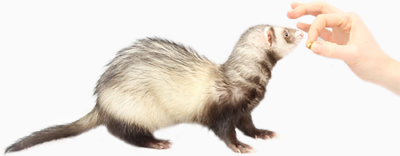
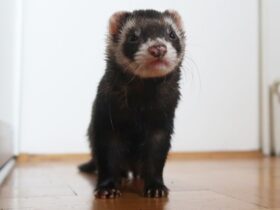

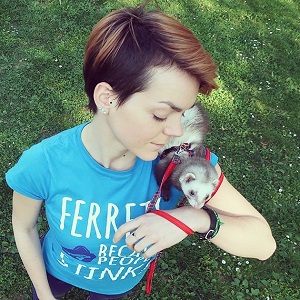

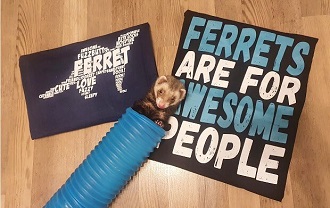
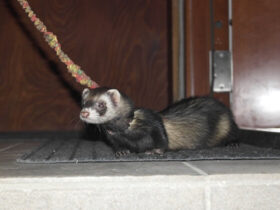



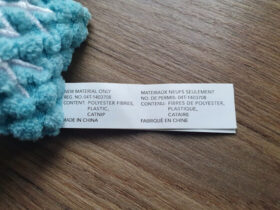
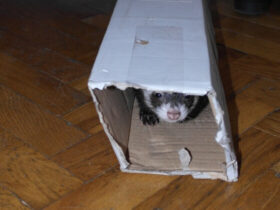
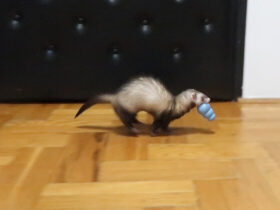
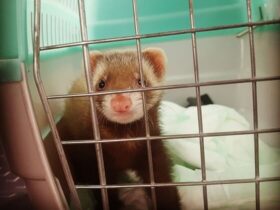
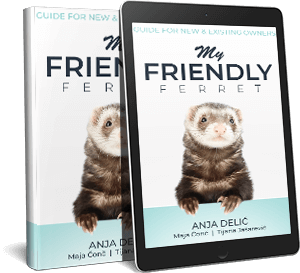
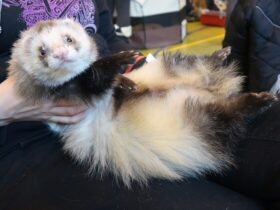
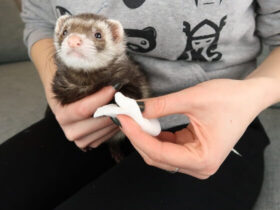
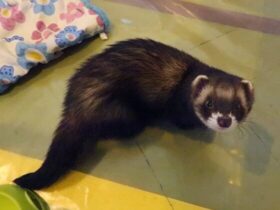
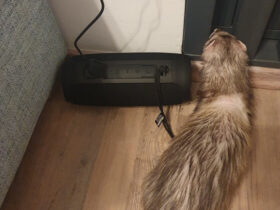
thanks for the list. I love plants and i’m getting a ferret in a few months so this helped.